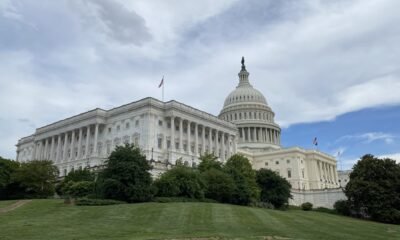abortion
Mesnard Expresses Cautious Optimism Ahead of LD13 Senate Challenge

In the Legislative District 13 senate race, a veteran Republican legislator contests his seat against Democratic challenger Sharon Winters. This matchup could significantly influence which party commandeers the chamber moving forward.
Sen. J.D. Mesnard, R-Chandler, boasts extensive legislative experience, having commenced his career in 2010 as a member of the House. He ascended to Senate in 2018 after a term as House speaker, and he cites his legislative impact as a primary reason for seeking reelection.
Winters, a political novice, previously worked as a special education teacher and is an author of four books. She asserts that her diverse background equips her with the necessary skills to address societal challenges effectively.
Legislative District 13 is recognized as a battleground, with a slight 4.4% Republican advantage according to the Independent Redistricting Commission. This district’s dynamics are crucial, given the GOP’s narrow majority in the Senate, where they hold 12,042 more registered voters than their Democratic counterparts.
Mesnard highlights his role in establishing the state’s flat personal income tax rate, emphasizing that tax cuts have generally aided Arizonans. His previous legislation, HB2663, aimed to increase teacher salaries by 20% and restore spending for educational supplies, benefitting educators across his district.
“The bills I have sponsored represent substantial investment in K-12 education,” Mesnard stated, expressing pride in the increase of average teacher salaries in his area.
If he secures another term, Mesnard intends to focus on fostering an environment conducive to job growth, drawing from his experience as the chairman of the Finance and Commerce Committee.
Winters presents a contrasting approach to education, advocating for reforms in the Empowerment Scholarship Fund. She emphasizes the importance of public funding for public schools rather than private institutions, calling for accountability in such decisions.
Her campaign prioritizes reproductive rights, with Winters supporting the inclusion of abortion protections in the state constitution. Conversely, Mesnard holds a pro-life stance, which has become a central divergence between their platforms.
Democrats view this contest as an essential opportunity to gain ground. However, campaign finance reports reveal Mesnard outspent Winters in the previous reporting period, a contrast to earlier trends favoring Democratic candidates.
Ahead of the general election, Winters maintains a stronger financial position, having $85,451 at her disposal compared to Mesnard’s $63,507. GOP consultant Barrett Marson doubts Winters’ chances, noting Mesnard’s local ties and history of service.
Contrarily, Democratic consultant Stacey Pearson argues that the race remains “absolutely still in play.” She stresses that voters in the Chandler and Gilbert areas are informed and attentive to legislative actions, which could affect Mesnard’s support.
With the general election approaching, Mesnard remains “cautiously optimistic.” He reflects on the competitive nature of the race and acknowledges the absence of significant negative campaigning thus far, in stark contrast to past election cycles.

















